Related Research Articles
Kenneth Bancroft Clark and Mamie Phipps Clark were American psychologists who as a married team conducted research among children and were active in the Civil Rights Movement. They founded the Northside Center for Child Development in Harlem and the organization Harlem Youth Opportunities Unlimited (HARYOU). Kenneth Clark was also an educator and professor at City College of New York, and first Black president of the American Psychological Association.
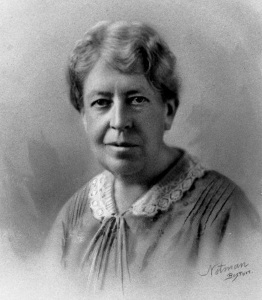
Mary Whiton Calkins was an American philosopher and psychologist, whose work informed theory and research of memory, dreams and the self. In 1903, Calkins was the twelfth in a listing of fifty psychologists with the most merit, chosen by her peers. Calkins was refused a Ph.D. by Harvard University because of her gender.
Mary Dinsmore Ainsworth was an American-Canadian developmental psychologist known for her work in the development of the attachment theory. She designed the strange situation procedure to observe early emotional attachment between a child and its primary caregiver.
Marcia K. Johnson is a Sterling Professor emeritus of psychology at Yale University. She was born in 1943 in Alameda, California. Johnson attended public schools in Oakland and Ventura. She attended the University of California, Berkeley where she received both her B.A. in psychology (1965) and Ph.D. in experimental psychology (1971). In 1970 Johnson moved to Long Island, New York to take a faculty position at The State University of New York at Stony Brook, where she worked until 1985. She then accepted a position at Princeton University and was there from 1985 to 2000. Johnson is currently a Sterling Professor Emerita of psychology at Yale University since 2000.

Magda Blondiau Arnold was a Canadian psychologist who was the first contemporary theorist to develop appraisal theory of emotions, which moved away from "feeling" theories and "behaviorist" theories toward the cognitive approach. She also created a new method of scoring the Thematic Apperception Test called Story Sequence Analysis.
Anne Anastasi was an American psychologist best known for her pioneering development of psychometrics. Her generative work, Psychological Testing, remains a classic text in which she drew attention to the individual being tested and therefore to the responsibilities of the testers. She called for them to go beyond test scores, to search the assessed individual's history to help them to better understand their own results and themselves.
Alberta Banner Turner was an African American professor and psychologist, and a noted civil rights and women's rights activist in the field of psychology.

Ruth Winifred Howard was an American psychologist. She is best known for her psychological work concerning students with special needs at Children's Provident Hospital School. She is one of the first African American women to earn a Ph.D. in Psychology. Howard was an active participant in the American Psychological Association, the International Council of Women Psychologists, the American Association of University Women, the National Association of College Women, and the Women's International League for Peace and Freedom. She also received instruction from Florence Goodenough.
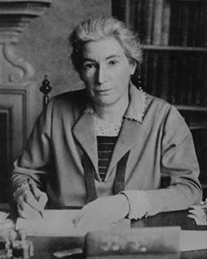
Beatrice Edgell was a British psychologist, researcher and university teacher. She taught at Bedford College in the University of London from 1897 to 1933. She was the first British woman to earn a PhD in psychology and the first British woman to be named a professor of psychology. She was also the first female president of the British Psychological Society, the Aristotelian Society, the Mind Association and the Psychological Division of the British Association for the Advancement of Science.
Janet Allison Taylor Spence was an American psychologist who worked in the field of the psychology of anxiety and in gender studies.
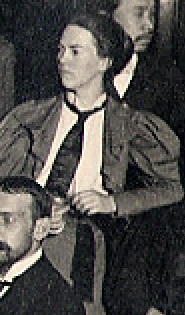
Amy Eliza Tanner was an American psychologist who became well known for discrediting the then-famous medium Leonora Piper after Tanner was allowed to attend six séances with a fellow researcher.
Dorothy Espelage is an American psychologist. She is the William C. Friday Distinguished Professor of Education at the University of North Carolina, and an international expert in bullying, youth aggression, and teen dating violence. She has authored several books including Bullying in North American Schools, Bullying Prevention and Intervention: Realistic Strategies for Schools, and Handbook of Bullying in Schools: an International Perspective.
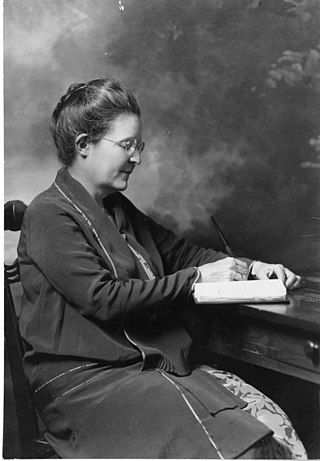
June Etta Downey was an American psychologist who studied personality and handwriting. Downey was born and raised in Laramie, Wyoming, where she received her degree in Greek and Latin from the University of Wyoming. Throughout her life Downey wrote seven books and over seventy articles. Included in this work, Downey developed the Individual Will-Temperament Test, which was one of the first tests to evaluate character traits separately from intellectual capacity and the first to use psychographic methods for interpretation.
Dorothy Cantor is an American psychologist and a former president of the American Psychological Association.

Florence Harriet Levin Denmark is an American psychologist and a past president of the American Psychological Association (APA) (1980-1981). She is a pioneering female psychologist who has influenced the psychological sciences through her scholarly and academic accomplishments in both psychology and feminist movements. She has contributed to psychology in several ways, specifically in the field of psychology of women and human rights, both nationally and internationally.
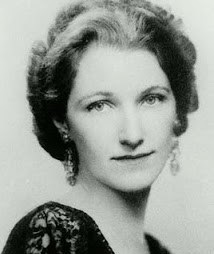
Anne Roe was an American clinical psychologist and researcher who studied creativity and occupational psychology. Her publications included The Making of a Scientist (1953) and the Psychology of Occupations (1956).

Janet E. Helms is an American research psychologist known for her study of ethnic minority issues. A scholar, author and educator, she is most known for her racial identity theory that is applied to multiple disciplines, including education and law. She received the 2006 Award for Distinguished Contributions to Education and Training in Psychology from the American Psychological Association.
Pauline Elizabeth Scarborough was an American historian of Psychology, born in Ruston, Louisiana. Scarborough transformed the understanding of early American Psychology through her work on the role and impact of women in the field.
Patricia Arredondo is an American counseling psychologist, primarily recognized for her efforts in developing the area of multicultural counseling. She has been recognized in the field of psychology for her contributions to the advancement of Ethnic Minority Psychology. She has been associated with the APA, and the National Hispanic Psychological Association along with many other associations. She is the 2018 recipient of the Anthony J. Marsella Award from the Psychologists for Social Responsibility.
Linda James Myers is an American psychologist best known for developing a theory of optimal psychology. Optimal psychology theory relies on African and Native American worldviews to promote interconnectedness and anti-racism. James Myers has offered significant contributions to the field of African Psychology. She has won numerous awards, including the Distinguished Psychologist Award from the Association of Black Psychologists, the Bethune/Woodson Award for Outstanding Contributions in the Development of Promotion of Black Studies from the National Council for Black Studies, and the Oni Award from the International Black Women’s Congress.
References
- ↑ Ogilvie, Marilyn Bailey; Harvey, Joy Dorothy (2000-01-01). The Biographical Dictionary of Women in Science: L-Z. Taylor & Francis. ISBN 9780415920407.